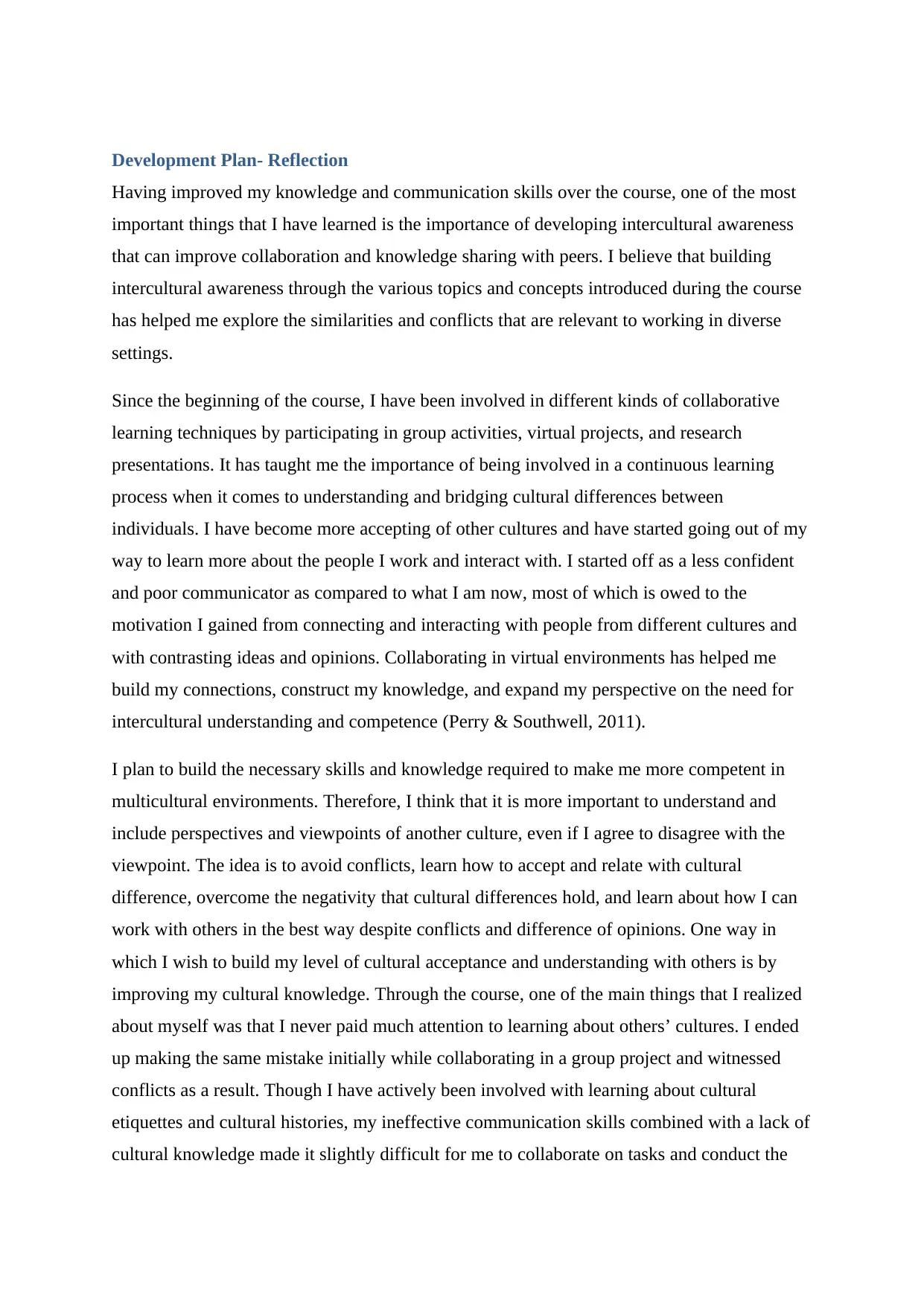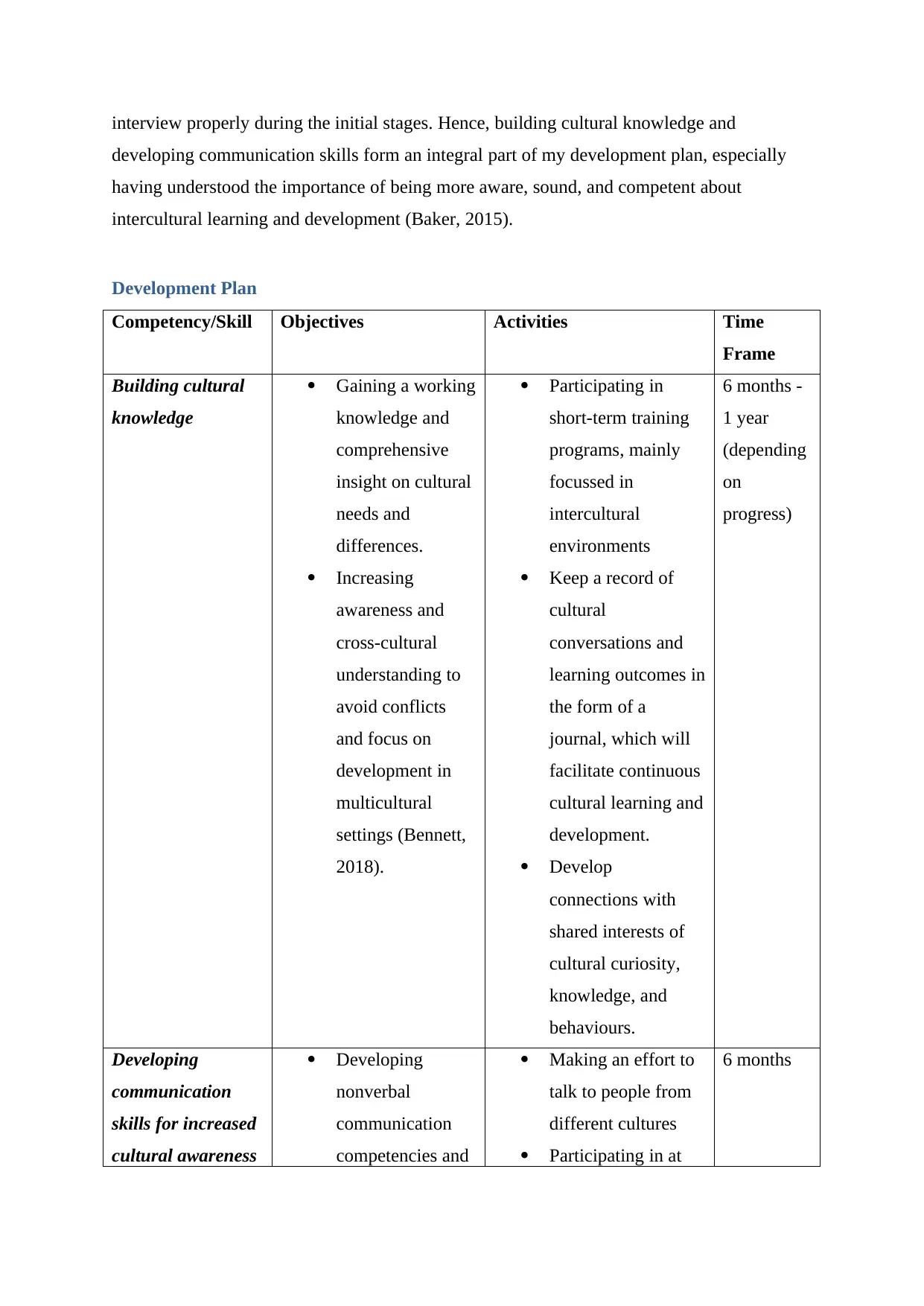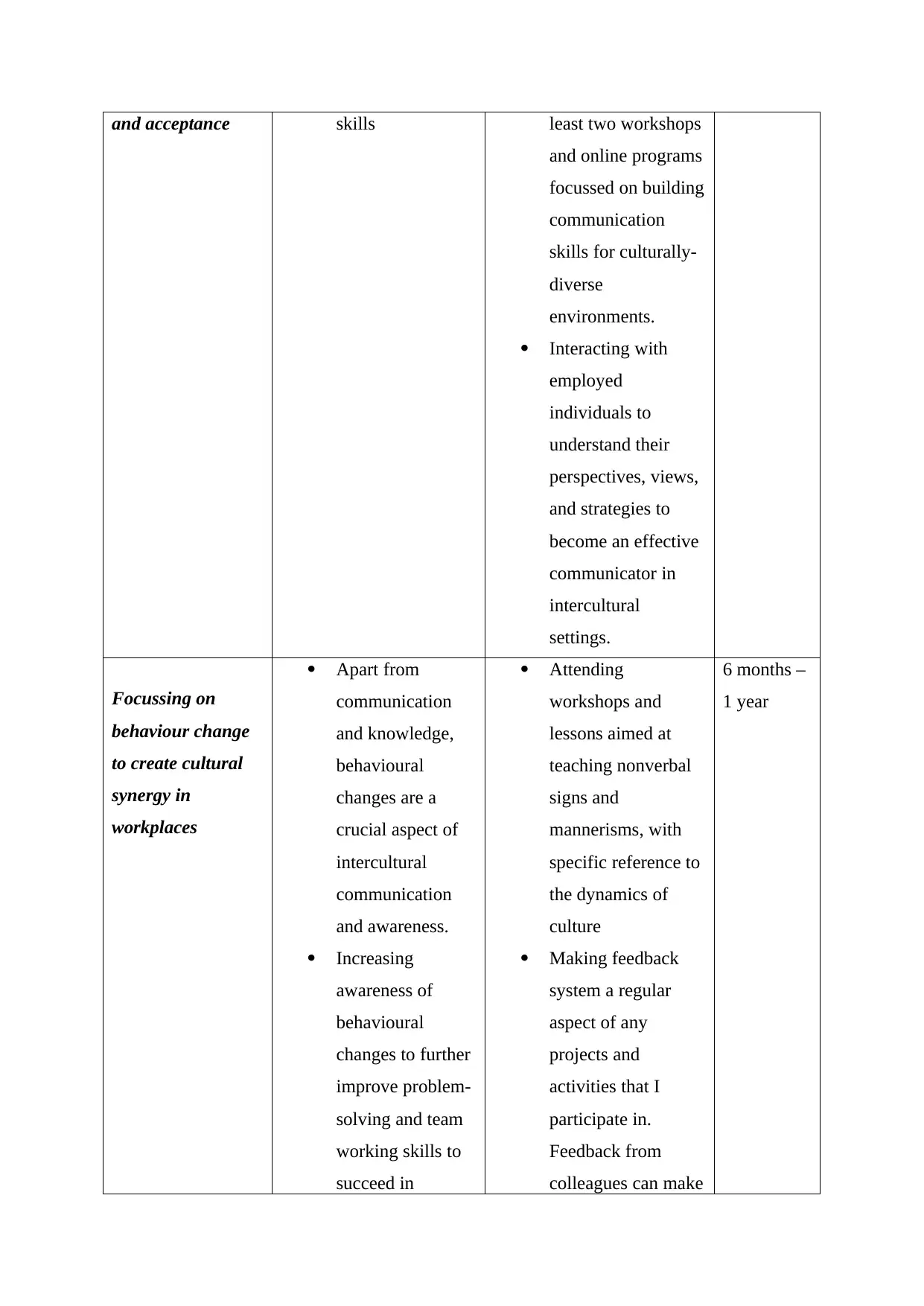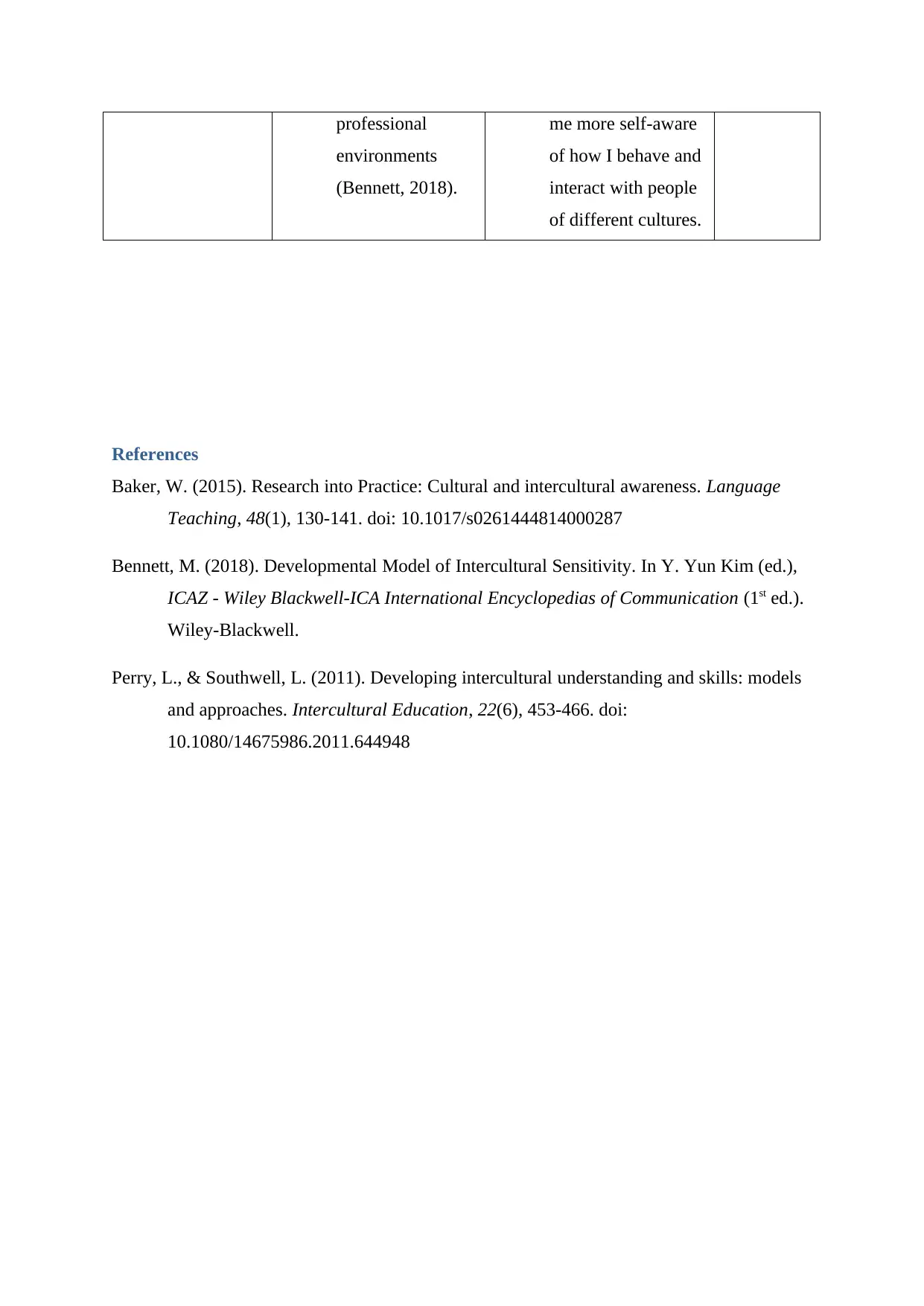Professional Development: Intercultural Learning ePortfolio Reflection
VerifiedAdded on 2022/10/03
|4
|878
|4
Project
AI Summary
This document presents a student's reflective analysis of their intercultural learning journey and a corresponding development plan. The student emphasizes the importance of intercultural awareness in improving collaboration and knowledge sharing, highlighting the impact of various collaborative learning techniques and virtual interactions on their understanding of cultural differences. The development plan focuses on building cultural knowledge, improving communication skills, and fostering behavioral changes to enhance cultural synergy in professional settings. The student outlines specific objectives, activities, and timeframes for each area, including participating in training programs, keeping a journal, and attending workshops to develop nonverbal communication competencies and build communication skills for culturally-diverse environments. The reflection also references key academic sources that support the student's learning and development.
1 out of 4











![[object Object]](/_next/static/media/star-bottom.7253800d.svg)